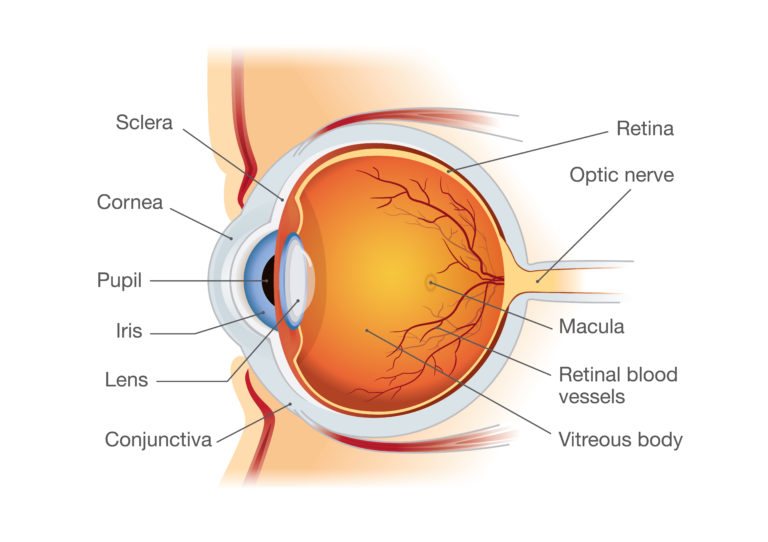

The cornea is a layer of transparent tissue at the front of your eye. Its primary function is to focus light as it enters the eye, which helps determine how well you see objects up-close and far away.
Irregularities in the curvature of the cornea can cause nearsightedness, farsightedness, or astigmatism. Glasses or contacts temporarily correct these irregularities so you can see better. LASIK, however, permanently reshapes the cornea to improve your vision and reduce the need for corrective eyewear.

The cornea provides 65-75% of the focusing power of your eye, which means it plays a significant role in how well you see. It also acts as a protective barrier against dirt, germs, and particles that can damage the eye. Lastly, the cornea filters out ultraviolet light, which reduces your risk of damaging the lens or retina from overexposure to the sun.
Corneal abrasions, trauma or injuries can result in scarring, which may block or distort light and cause blurry or hazy vision. Minor scratches on the cornea typically heal quickly, while more severe injuries can cause permanent damage. Patients with severe corneal injuries or disease may experience pain, reduced vision, sensitivity to light, redness or inflammation. Make an appointment with your eye doctor if you experience these symptoms.
Dry eye syndrome causes the eye to produce fewer tears, which results in constant irritation, redness, stinging and burning in the eye. Dry eye can disqualify patients for invaluable procedures like LASIK or cataract surgery, so it’s important to treat the cornea with prescription medications to reduce inflammation and help the body produce more tears.
Keratitis is a common inflammation of the cornea caused by bacteria, viruses, or leaving contact lenses in for too long. Minor, noninfectious cases of keratitis can be treated with antibacterial eye drops, while more severe cases may require antibiotics to treat the infection and reduce inflammation.
Allergies
Pollen causes eye irritation for many patients, especially in the spring and summer. Redness, itching, burning and tearing are common, but relatively minor. Antihistamine eye drops can provide relief from allergy symptoms that irritate the cornea.
The best way to prevent cornea problems is to schedule regular eye exams. Most corneal diseases can be caught early and treated. Our cornea specialists provide compassionate care and treatment for a variety of corneal conditions, from minor corneal abrasions and keratitis to more severe conditions such as keratoconus. In advanced cases, a corneal transplant may be necessary.